skepticism 101 lectures
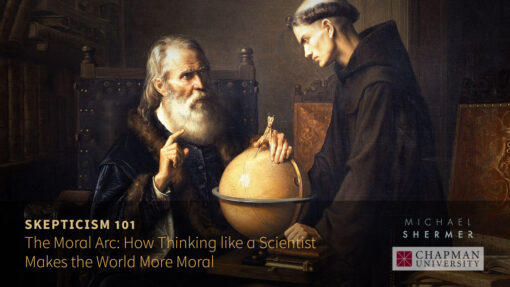
In this, the final lecture of his Chapman University Skepticism 101 course, Dr. Michael Shermer pulls back to take a bigger picture look at what science and reason have done for humanity in the realm of moral progress. Watch The Moral Arc: How Thinking Like a Scientist Makes the World More Moral.
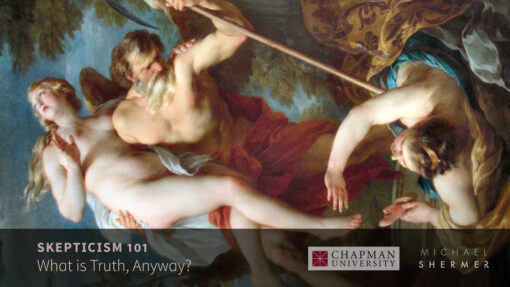
In this lecture Dr. Michael Shermer addresses one of the deepest questions of all: what is truth? How do we know what is true, untrue, or uncertain?
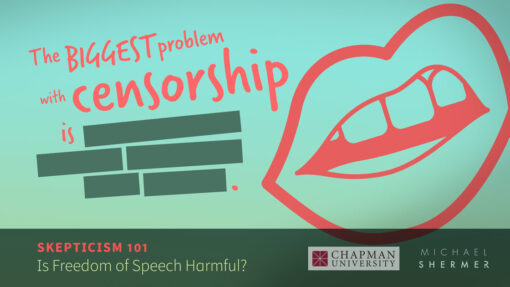
In this lecture, Dr. Michael Shermer addresses the growing crisis of free speech in college and culture at large, triggered as it was by the title lecture, which he was tasked to deliver to students at California State University, Fullerton, after a campus paroxysm erupted over Taco Tuesday.
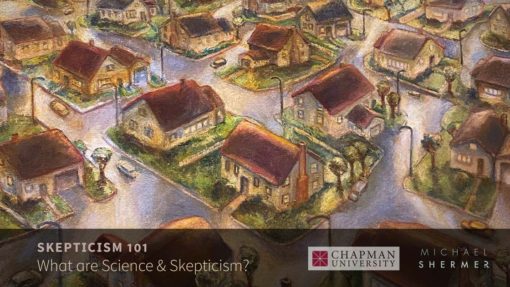
In this lecture, Dr. Michael Shermer presents descriptions of skepticism and science and how they work, along with a discussion of the difference between science and pseudoscience, and some very practical applications of how to test claims and evaluate evidence.
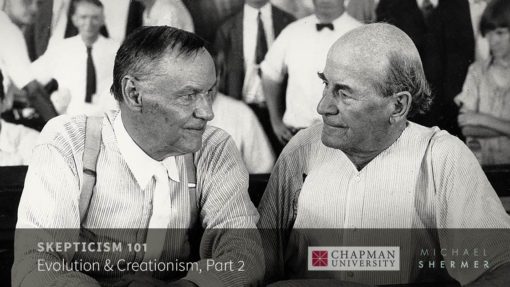
Dr. Michael Shermer continues the discussion of evolution and creationism, focusing on the history of the creationism movement and the four stages it has gone through.
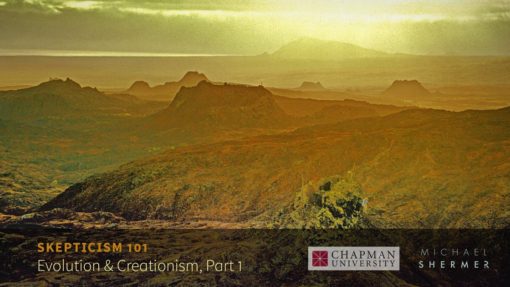
In this lecture on Evolution and Creationism (Part 1), Dr. Michael Shermer takes viewers to the Galápagos Islands to retrace Darwin’s footsteps and show that, in fact, Darwin did not discover natural selection when he was there in September of 1835. He worked out his theory when he returned home, and Shermer shows exactly how Darwin did that, along with the story of the theory’s co-discoverer, Alfred Russel Wallace.

In this lecture on Holocaust Denial, Dr. Shermer employs the methods of science to history, showing how we can determine truth about the past.
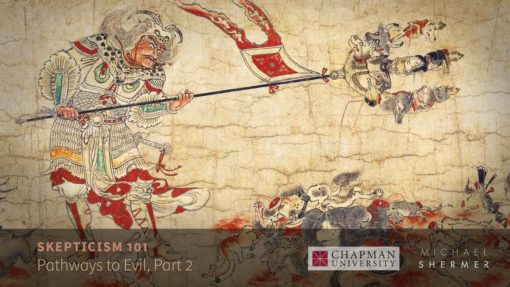
In his lecture on Pathways to Evil (Part 2), Dr. Michael Shermer fleshes out the themes of Part 1 by exploring how the dials controlling our inner demons and better angels can be dialed up or down depending on circumstances and conditions. Are we all good apples but occasionally bad barrels turn good apples rotten, or do we all harbor the capacity to turn bad?
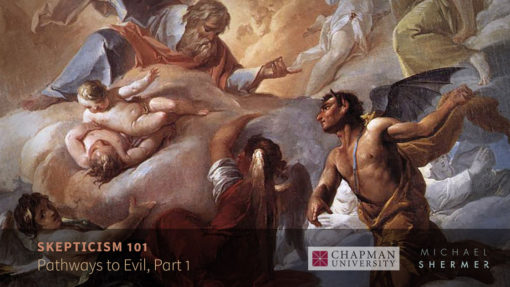
In his Skepticism 101 lecture on Pathways to Evil (Part 1), Dr. Michael Shermer considers the nature of evil in his attempt to answer the question of how you can get normal civilized, educated, and intelligent people to commit murder and even genocide.
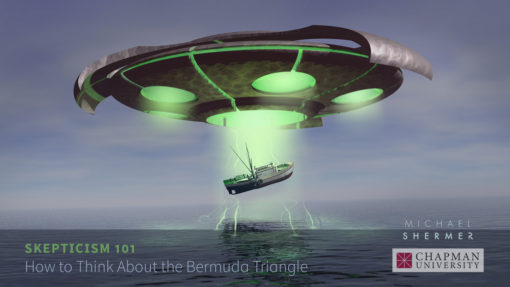
Dr. Michael Shermer examines the claims about the Bermuda Triangle using the tools of skepticism, science, and rationality to reveal that there is no mystery to explain.
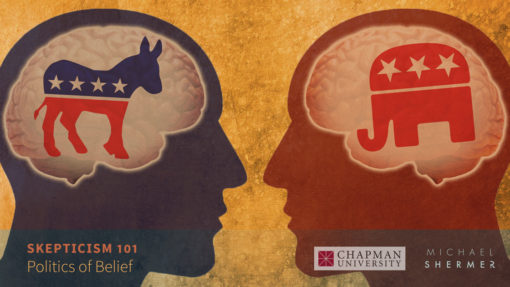
Dr. Michael Shermer explains how we arrived at the Left-Right spectrum, both historically and evolutionarily, and the numerous metaphors used to wrap our minds around such complex systems as politics and economics.
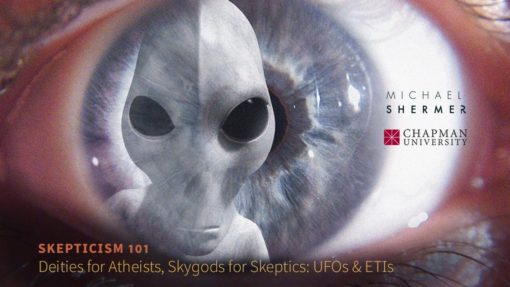
Dr. Michael Shermer distinguishes between two questions: (1) Are extraterrestrial intelligences (ETIs) out there somewhere in the cosmos? and (2) Have aliens come here? Evidence for both questions is considered in the larger context of why the issue so compels us to answer it almost religiously.
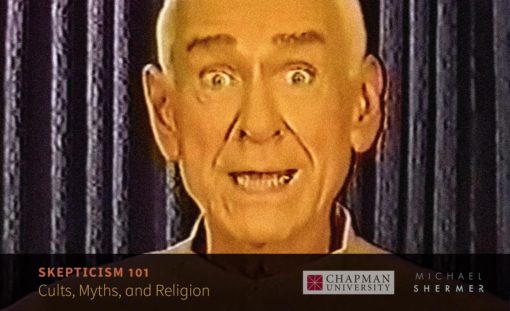
Dr. Michael Shermer considers the characteristics of cults, how they differ from sects, religions, and myths, the role that myths and religions play in culture and people’s lives, and what Scientologists really believe.
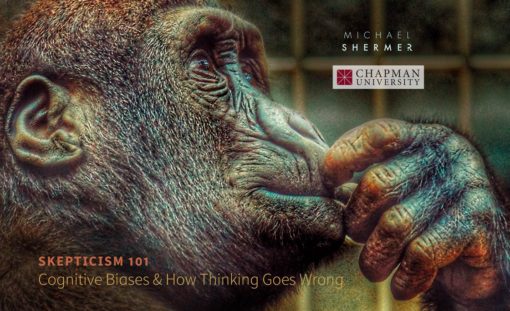
Dr. Michael Shermer reviews the many ways that our attempts to understand the truth about the world are derailed by cognitive biases, including the anchoring bias, the representative bias, the availability bias, the confirmation bias, the hindsight bias, the self-serving bias, and even the bias bias.
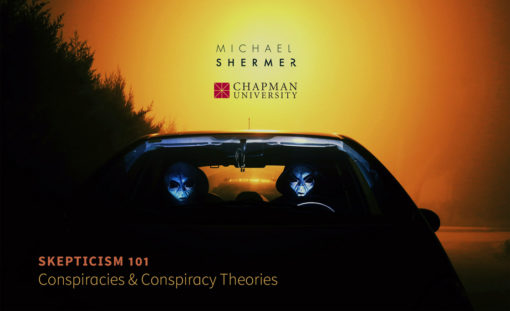
Dr. Michael Shermer explains the difference between conspiracies and conspiracy theories, who is more likely to believe which conspiracy theories, the social, political, cultural, and psychological conditions in which conspiracy theories flourish, real conspiracies, and who really killed JFK.























